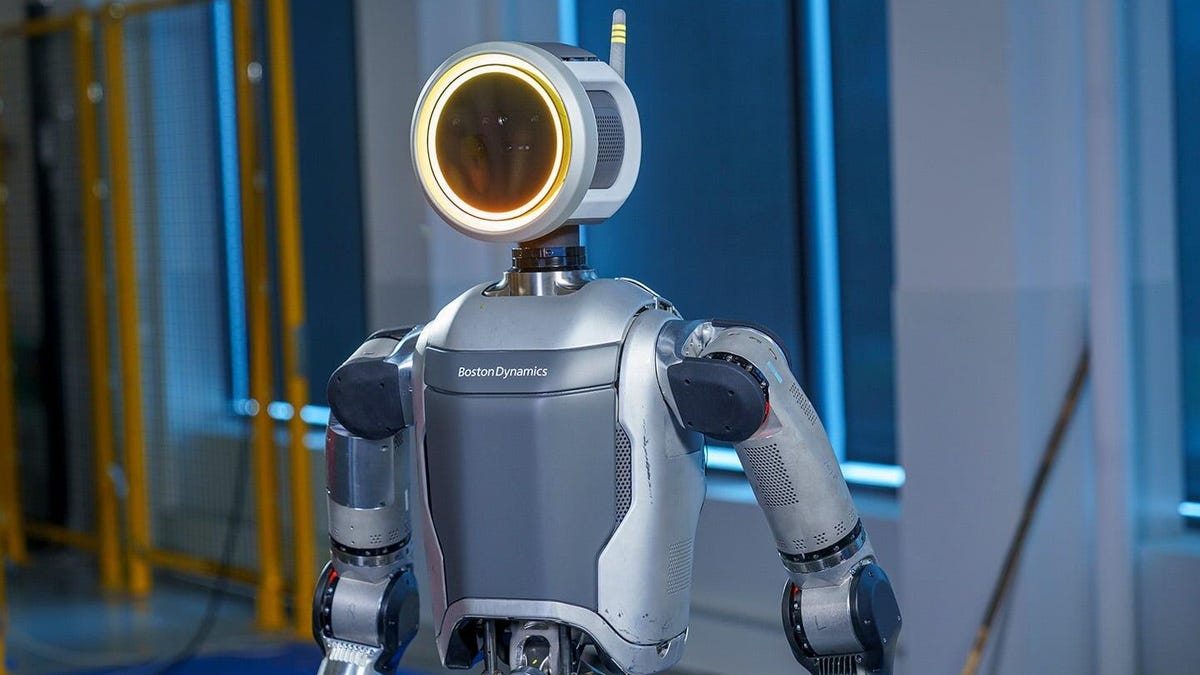- Vision Quest
- Posts
- This Week In Tech 17
This Week In Tech 17
Check out the latest in AI, Robots and Flying Cars
From CRISPR to Robots and Sky Taxis: Today's Pioneering Tech Advances
This week we kick things off with a splash in the gene editing pool—generative AI has teamed up with CRISPR to potentially change how we approach medicine, one DNA strand at a time. On the virtual assistant front, Meta's AI, now turbocharged by Llama 3, promises to keep you connected and creating across your favorite apps faster than you can say "generate." Meta isn't stopping there; it's also opening its mixed reality ecosystem to third-party innovators, making the Meta Quest universe even more expansive.
Meanwhile, Boston Dynamics' new humanoid robot might just be too lifelike for comfort, showing off moves that blur the lines between robotic and creepy. And in the skies, eVTOLs are nudging us closer to the Jetsons' era, but whether we'll actually be zipping around in flying cars soon is still up for debate.
Artificial Intelligence
Generative A.I. is making waves in the world of gene editing, similar to its impact on digital media. Profluent, a startup from Berkeley, has developed a new A.I. system that creates designs for microscopic mechanisms capable of editing DNA. These advancements could revolutionize medical treatments, allowing for more precise and efficient health interventions.
This technology, rooted in CRISPR innovations, could significantly accelerate the development of personalized medical solutions, potentially ushering in a new era of quick, tailor-made therapies that are more accessible than ever before.
There is new competition against the AI assistant giants like OpenAI and Microsoft - Meta AI - built on the new Meta Llama 3 platform. This advanced assistant, which is being touted as the smartest free option available, integrates seamlessly across Meta apps like Facebook, Instagram, WhatsApp, and Messenger, enhancing user experiences globally with practical everyday functions.
Meta AI introduces faster image generation, allowing real-time creation of custom graphics and animations directly in chats or via the web. Quite a change from putting in a prompt and waiting X seconds for an image to pop up. This could tighten the cycle even further of going from concept to reality.
This announcement also extends its capabilities globally, providing on-the-go assistance in over a dozen new countries, with further expansions planned. Let’s see how Meta AI keeps up with the competition the rest of 2024 and beyond.
VASA-1 from Microsoft
The First AI-Generated Video That Looks Super Real
Microsoft Research announced VASA-1.
It takes a single portrait photo and speech audio and produces a hyper-realistic talking face video with precise lip-audio sync, lifelike facial behavior, and naturalistic head movements… twitter.com/i/web/status/1…
— Bindu Reddy (@bindureddy)
11:17 PM • Apr 17, 2024
The Metaverse and Spatial Computing
Meta is expanding the reach of its Meta Quest operating system, now named Meta Horizon OS, by opening it to third-party hardware manufacturers. This move aims to foster a broader ecosystem of mixed reality devices and simplify app development for a wider audience. Meta Horizon OS, built on a decade of development, integrates advanced tracking and mixed reality technologies, enhancing social connectivity across virtual spaces.
With partnerships including ASUS and Lenovo, and collaboration with Microsoft & Xbox for a special edition Meta Quest, Meta is setting the stage for a more inclusive and expansive mixed reality environment. This strategy promises to enhance user choice and developer opportunity, marking a significant step toward mainstreaming mixed reality.
Guitar Hero in Real Life
Robotics
We’ve been following the progress of humanoid robots recently and one of the industry leaders just made a serious upgrade. Boston Dynamics has introduced a new all-electric version of its Atlas robot which replaces the HD Atlas, known for its running, flipping, and parkour capabilities. The next-gen Atlas features improved strength and motion range, causing both fascination and unease with its non-human-like movements, such as legs bending backward and a rotating head.
As Boston Dynamics moves forward with innovations, this latest iteration of Atlas demonstrates the company's continued push towards advanced robotic capabilities and broader functional scope in robotic design.
Are flying cars really here? Peter thinks so
The promise of flying cars, a staple of science fiction, seems closer than ever with the advent of eVTOLs—electric vertical takeoff and landing vehicles. Companies like Lilium, Beta, and Volocopter are leading this aviation revolution. Lilium's seven-seater jet and Beta's ALIA electric aircraft are pushing boundaries with significant advancements in speed, range, and certification from major aviation authorities. Meanwhile, Volocopter's simpler, drone-like vehicles cater to urban environments with short-range capabilities.
Despite these developments, the practicality and widespread adoption of flying cars remain to be seen, as the industry still grapples with numerous technological and regulatory challenges.
Will we end up like the Jetsons with a sky full of cars? Or will we stick to the ground for the foreseeable future? Only time will tell.
How did you like this week's edition? |





